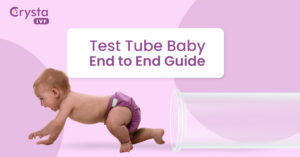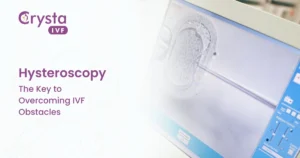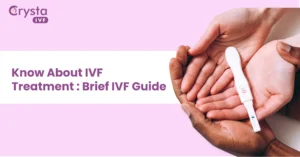We are all aware of the permissible and non-permissible values associated with In Vitro Fertilization or assisted reproduction methods for childless couples to fulfill their dreams of parenthood.
Infertility is a heart-wrenching phase of life for a couple who has been yearning for a successful pregnancy and healthy childbirth. Ever since the first test-tube baby’s inception, the trend of In Vitro Fertilization (IVF) procedures has become prevalent among couples. Kids are a magnificent gift of a beautiful marriage, but when couples fail to achieve pregnancy despite several tries, their life becomes stressful and depressing. But, creating a human being in an IVF laboratory is not accepted by all religions and communities.
For example, Catholics’ views on IVF differ from the contemporary thoughts and values of people. In this write-up, we will dive deep into the prevalent ideas and misconceptions of IVF and how the advancement in technology transformed the catholic mindset towards assisted reproduction and IVF benefits.
Catholic Church and IVF: Talk of the Era
It is rightly said that a miraculous act of joy can spark another. After the birth of the world’s first test-tube baby, millions of babies were conceived through In Vitro Fertilization. In Vitro, Fertilization is one of the techniques utilized for assisted reproduction. Here, human eggs’ fertilization is done in a laboratory, and then the resultant embryo is transferred into a woman’s womb.
A good percentage of the world’s population is conceived through In Vitro Fertilization every year. When it comes to enlisting the benefits of this particular method of assisted reproduction, the number becomes innumerable. In-Vitro Fertilization has changed many impossible strata in possible ways. It allows an infertile couple to extend their family in an ineffable yet mellow manner.
Even on seeing many great possibilities engraved with In Vitro Fertilization yet, some sects do not approve of this great medical technology. Catholic churches reign the question of the dilemma here. Different religions have their take on how beneficial IVF Technology is and other procedures regarding which are approved, accepted, and not.
Why is the Catholic Church against IVF?
Catholic church states that assisted reproduction removes the child’s conception through the sexual relationship between the couple. Such a fluid approach to assisted reproduction would only agitate the people who believe that only through natural means, the occurrence of human life would begin its conception. IVF and Christianity do not seem to go along well, as the pastors believe in the child’s natural birth.
Catholics view on IVF
This topic has been in the debate between bioethicists and Catholic churches for quite a considerable time. The bioethicists assert on approving the technical assistance being necessary for an individual couple to conceive. The church leaders defend themselves, stating that they are not against science or by any means, wish to be anti-science. Instead, they are against the procedures that violate human life’s dignity and disregard the first cause for marriage. Catholic church and IVF could only become partners if the church leaders and bioethicists find a middle ground on this issue.
What does the Bible say about artificial insemination?
The objections raised by the church leaders entail IVF Technology being not a natural means; rather, a procedure where manipulations can be done against God’s will. They started their altercation by firstly highlighting the process of fertilization being undertaken in a laboratory. According to them, it discards the conception of a child from an act of marriage. Both the catholic church and IVF hold their notion up straight in assisting the infertile couple to conceive. But the Catholic’s focus on what’s been said in the Bible about assisted reproduction and artificial insemination.
One of the bioethicists of a catholic center established an argument. It stated that IVF deranges the pregnancy from a natural end and becomes endangered as the technicians perform the procedures. Herein, the couple stands as a mere source of the raw material. Their eggs then get manipulated by the technician’s end, which causes the fertilization altogether.
Soon, another argument was highlighted regarding the implantation of the egg into the uterus. It seems parallel but separates the end, in the case of a means to an end, and the marriage’s meaning. Here, the focus is on how IVF is just a means to seek procreation and not having the fruit of their particular act of conjugal union. Many catholic churches affirm their dissent towards artificial birth control and assisted reproduction techniques.
Assisted reproduction or natural conception: a Catholic View
The Catholic church debate says most of the embryos conceived through IVF would die as they have a too high failure rate. The bioethicists resonate, stating many natural pregnancies also end up in a miscarriage or stillbirth. The Catholic churches ultimately favor natural means of conception while turning a blind eye towards the incredible possibilities of IVF Technology. In the pace of forming a comprehensive dispute, the catholic church and IVF disagree over the notion of God’s natural order. The Catholics affirm the legitimate fertilization when sought as a result of a conjugal act. Since they believe the best marriages come in nature’s ruling where the spouses become one flesh. Nature’s order is sought to be dismantled when seen from a moral perspective here. In assisted reproduction, procreation does not come as a fruit of a conjugal act between the couple.
Fundamental Goods Triad – IVF Technology
Later on, with much effort, the bioethicists sought a middle ground. They were propounding three fundamental goods abiding by the medical techniques undertaken in treating infertility. They were also considering something that could support both the catholic church and IVF in their motives and intentions.
- The first is the right to life and every human being’s physical integrity from their conception to natural death.
- Secondly, the unity of marriage, the right to reciprocal respect within the union to become a father or mother, together with their spouse only.
- The last fundamental good they mentioned was regarding the human values of sexuality. It required the procreation of a human child being brought to existence as a fruit of the parent’s conjugal act.
Medical sects advocated the medical efforts that assist the procreation should not be rejected on the grounds, claiming them artificial. Such methods of procreation could prosper the possibilities of the art of medicine. But they are also giving them a moral perspective of evaluation about the dignity of human life as the church leaders consider them to realize their vocation from God as a gift of love and life. It stands as another reason for IVF and Christianity not to embroil much together.
Contemporary thoughts about IVF and Artificial Insemination
Many doctors came up with a positive accentuation and initiated the golden mean between the catholic church and IVF. They inferred what the Catholic churches were trying to teach them. Any medical intervention is made to assist the married couple in achieving pregnancy, and it can be considered moral. But if such an intervention replaces the act of marriage to endanger life, it will not be regarded as righteous.
The Catholic churches approve of the technology that helps in the manner where there sustains natural family planning. They incorporate scientific research with advanced medical techniques to predict ovulation, knowing the fertile window for easy conception. These are considered as a valid procedure for assisting couples who are trying to extend their families.
Changing dynamics of IVF and Christianity
Many religions are somewhat strict with their teachings related to human sexuality and reproduction. Catholics being one of them, remains a bit stringent with their approval towards the same. IVF and Christianity could only be brought together with their similar notion of extending the families of infertile couples. Yet both differ in acceptance of what’s natural and what’s manipulated.
Assisted reproduction, primarily using the laboratories, IVF, may cause moral dissatisfaction and lead to ethical dilemmas for the faithful or atheists. It is another clause why IVF and Christianity don’t trace the same path. Some attempts involve several eggs being fertilized then implanting several eggs in the uterus all at once. Later, as the viable fetuses increase, they are reduced through abortion surgeries for the healthy one to survive and grow. It is observed as the killing of innocent human beings. The Catholic churches believe that from the moment of conception, the fertilized egg is a person. Simultaneously, the storage of embryos in a frozen state is weighed as a violation of human dignity.
Final Verdict
The Catholic churches apply a different approach in advocating natural conception. Most couples marry with the expectation of extending their family. If infertility comes in the way, the couple’s sentiments are badly hurt. Bioethicists stand firm on the same premise. If hindered by the infertility clause, a couple’s expectation shortens their hearts (If the infertility clause restricts a couple’s expectation, they need not shorten their heart.)But IVF can still fulfill their dream of becoming a parent. This only factor establishes the median between the catholic church and IVF. It evokes one to find an ultimate rationale, yet the former shows why is catholic church against IVF.

With advancements in technology globally and assisted reproduction, such ethical dilemmas will keep on bugging many couples. That would again question the path of the catholic church and IVF. The major one out of all remains the questions of frozen embryos. According to the Catholic churches, every embryo is a unique human being who deserves to be born and flourish.
Couples with other complications and with different numbers of possibilities could adopt such embryos and raise them as their own. This way, no embryo would be disposed of, and no such danger to life is possessed. The medical field’s advancement can bring in several possibilities and fulfill the dreams of a childless couple in becoming a parent.




